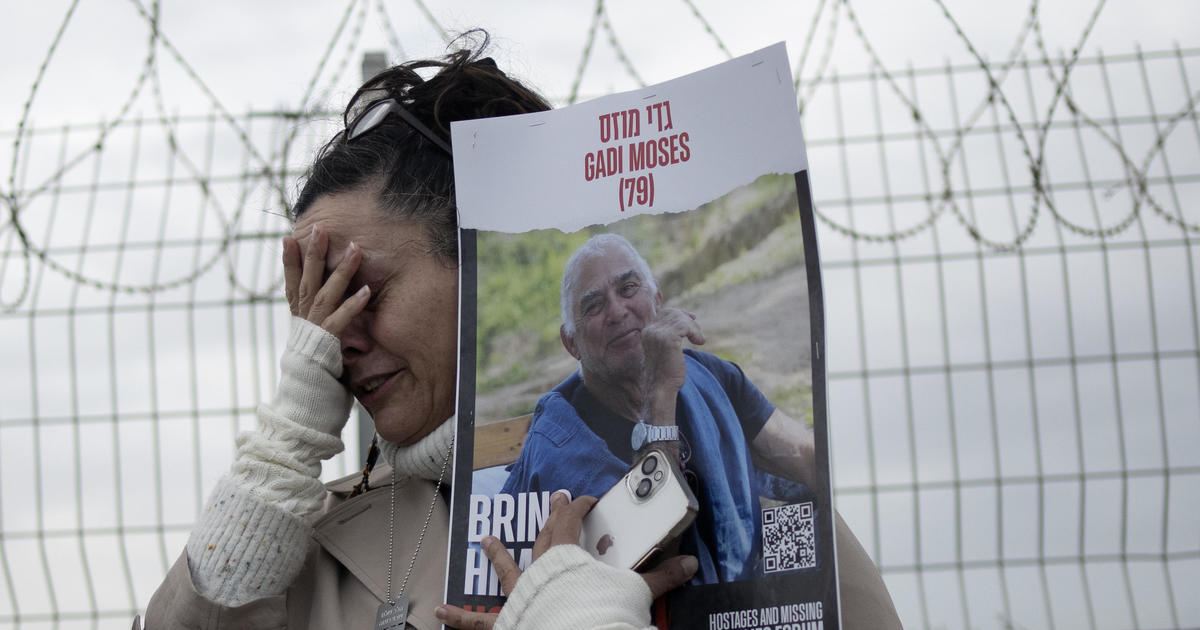The upcoming Rosh Hashanah, a significant Jewish holiday, holds a bittersweet significance for Efrat Machikawa and her family in southern Israel. While they traditionally celebrate with Tunisian delicacies prepared by her mother, this year’s festivities are overshadowed by the ongoing captivity of her uncle, Gadi Moses, in war-torn Gaza. This ordeal, following the devastating Hamas attacks of October 7, 2023, profoundly impacts their lives and highlights the enduring trauma and resilience of families impacted by the conflict. This year’s celebration is profoundly impacted by the absence of family members who remain hostage, casting a long shadow over what should be a joyful occasion. The family’s experience encapsulates the collective grief and determination of Israelis impacted by the Hamas attacks.
The Trauma of October 7th and its Lingering Effects
The Devastation and Loss
The October 7, 2023 Hamas attacks left an indelible mark on Machikawa’s family and her community. Six members of her family were either killed or taken hostage during the brutal assault on Kibbutz Nir Oz. The massacre resulted in the loss of 1200 lives and the abduction of 251 people. This horrific event fundamentally altered their lives, leading to immense grief and loss that continues to reverberate a year later. Machikawa vividly describes the past year as “one long day”, illustrating the unending nature of her trauma and the emotional weight of dealing with such a monumental loss and ongoing uncertainty.
The Release and Ongoing Captivity
While four members of her family were eventually released, the release did not bring a sense of resolution, as her uncle, Gadi Moses, remains held captive in Gaza. Even for those released, the experience left lasting psychological wounds. Machikawa describes the difficult reintegration process for her aunt, Margalit, who was seriously injured during her abduction, and the struggles faced in processing the horrors of October 7. The lingering absence of Gadi serves as a painful reminder of the conflict’s devastating impact, while the release of others does not negate the suffering of those still held captive.
The Long Road to Recovery and the Fight for their Loved Ones
The emotional toll of the past year is substantial. The family navigates an unending cycle of grief, anxiety, and the constant yearning for the return of their loved ones. The wait for news and the uncertainty regarding the fate of the remaining hostages only intensifies their suffering. Machikawa highlights this strain on her family by comparing this holiday celebration to “nothing to celebrate. Nothing”. She has dedicated the past year tirelessly campaigning for the release of her uncle and the other hostages held captive in Gaza. The family’s efforts embody the collective strength and resilience of Israeli families directly impacted by the conflict.
The Struggle for the Release of Hostages
International Advocacy and Diplomatic Pressures
Machikawa has undertaken a relentless campaign, travelling globally and advocating to world leaders to exert pressure on the Israeli government and Hamas to secure the release of her uncle and the remaining hostages. Her efforts exemplify the extraordinary lengths families are going to bring their loved ones home. This commitment transcends personal grief, highlighting the desperate need for international collaboration and focused diplomatic efforts to resolve the hostage crisis.
Criticism of the Israeli Government’s Approach
While expressing gratitude to the Israeli army and security forces engaged in the negotiations, Machikawa openly criticizes her government’s handling of the situation. She expresses a sense of frustration with the perceived lack of government effort, particularly emphasizing the burden placed on families to maintain international pressure for a solution. This critical perspective illuminates concerns about political responsiveness to the needs of families impacted by this horrific conflict.
The Uncertain Future and the Persistence of Hope
Despite facing immense obstacles and prolonged uncertainty, Machikawa resolutely maintains her hope for the return of her uncle and fellow hostages. Her determination reflects an unwavering resolve amidst the challenges and emphasizes the enduring power of hope in the face of unimaginable hardship. Her message transcends the immediate family context, conveying the resolute determination of many families who are deeply affected and working towards a future in which they are reunited with their loved ones.
The Impact on Israeli Society and the Path Forward
The Collective Trauma and National Unity
The events of October 7th have profoundly impacted Israeli society, evoking a collective trauma that transcends geographical boundaries. The attacks unified the nation in grief and prompted strong resolve. However, this collective sorrow is profoundly complex with various responses manifesting differently based on family circumstance.
The Ongoing Security Concerns and the Need for Solutions
The ongoing hostage crisis and security concerns have heightened anxieties and reinforced the need for enduring peace and stability in the region. While immediate efforts are focused on recovering hostages and providing support to affected families, it highlights the imperative for a long-term strategy and approach that involves proactive diplomatic efforts in the region.
A Year of Grief, Resilience, and Unwavering Hope
This article details the profound experience of the Machikawa family, showcasing their resilience in the face of unimaginable loss and relentless hope. The family’s story acts as a powerful and symbolic account of a greater collective tragedy impacting the nation of Israel.
Take Away Points:
- The October 7, 2023 Hamas attacks inflicted immense suffering and loss on countless Israeli families, including the Machikawas.
- The ongoing captivity of hostages continues to cause immense grief and uncertainty, adding another layer of complexity to the process of healing and recovery.
- The families of the hostages are playing a crucial role in international advocacy, urging governments to intensify efforts to secure their loved ones’ release.
- The experience of the Machikawas underscores the broader collective trauma experienced across Israeli society and the need for effective long-term solutions to address both immediate crises and underlying causes of regional instability.




